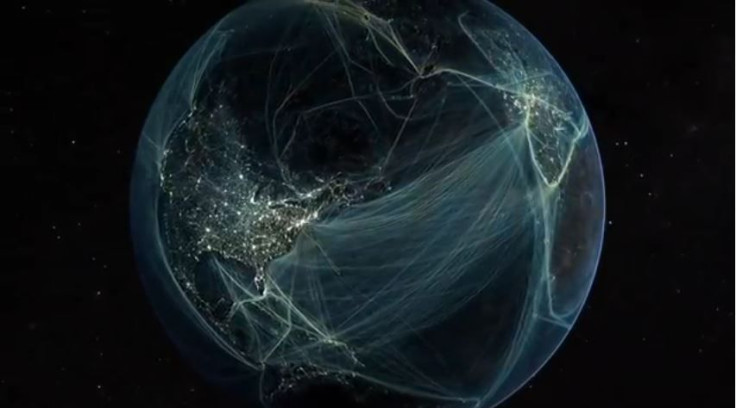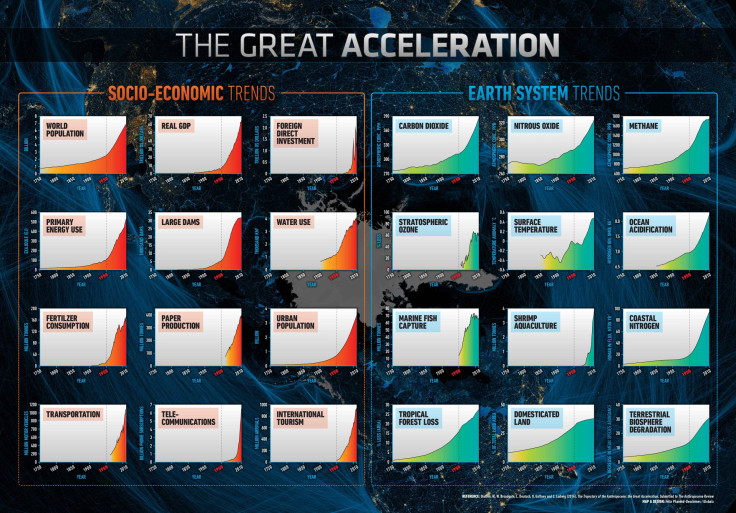The Anthropocene, A New Geological Period, Began In 1950, Scientists Say

Most likely you are familiar with the terms "Jurassic" or "Pleistocene," and maybe you even have some understanding of how they refer to specific geologic periods. In an effort to characterize the contemporary epoch, geologists have coined the term “Anthropocene,” a name highly suggestive of human interaction. Now, new research from the International Geosphere-Biosphere Programme supports one proposal that Earth, our beautiful planet, officially entered this new geological epoch as of 1950 (give or take a few years).
“In a single lifetime humanity has become a planetary-scale geological force," said Dr. Will Steffen, lead author of the study and a professor at Australian National University.
In fact, our human activity is now the prime driver of changes in the Earth System, our planet's physical, chemical, biological, and human processes. This brief YouTube video explains the concept of an Anthropocene, a term originally coined in 2000 by researchers Paul Crutzen and Eugene Stoermer.
Steffen and his team began their study by deciding on a set of 24 separate global indicators through which to view human activity across the planet. Next, the team tracked activity falling under each of these headings beginning with the year 1750 through 2010 — from the start of the industrial revolution through today — while also monitoring the impact on the Earth System produced by each activity. Such impact would include changes such as ocean acidification, deforestation, greenhouse gas levels, and biodiversity deterioration. Finally, after viewing each indicator separately, the researchers created a "planetary dashboard" and viewed all 24 together at once.
"When we first aggregated these datasets, we expected to see major changes but what surprised us was the timing,” Steffen stated in a press release. “Almost all graphs show the same pattern. The most dramatic shifts have occurred since 1950. We can say that around 1950 was the start of the Great Acceleration.”
Further explaining the planetary dashboard, Steffen noted how a new phenomenon occurred around 1950, whereby you could see how major Earth System changes became directly linked to changes related to the global economic system. In fact, the planet is now in a different state than previously, with several significant planetary processes driven by human consumption and production.

Though convincing to those of us who are not geologists, this newly proposed start date for the Anthropocene would not be supported by all scientists. (While geologists spend an awful lot of time arguing about it, the term Anthropocene and even the very idea of this new epoch has never actually been formalized by the International Commission on Stratigraphy.) Other geologists believe the industrial revolution, around the late 1700s, is a more likely candidate for the start date.
"Of all the candidates for a start date for the Anthropocene, the beginning of the Great Acceleration is by far the most convincing from an Earth System science perspective," the researchers argue in their published paper.
Source: Steffen W, Deutsch L, et al. The trajectory of the Anthropocene: The Great Acceleration. Anthropocene Review. 2015.



























